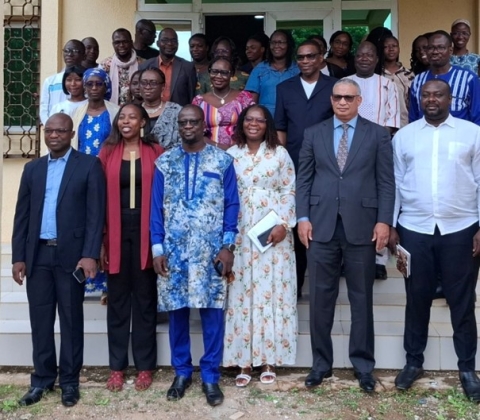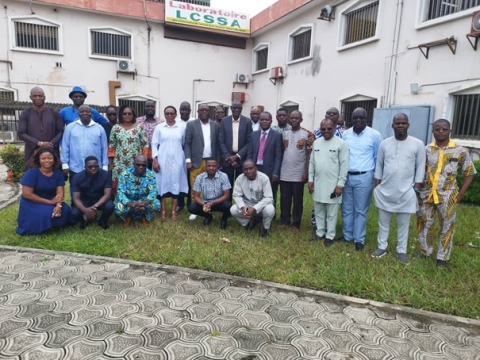
On 29 May 2025 in Abidjan, during the 7th edition of the Salon de l'Agriculture et des Ressources Animales (SARA), ECOWAS, through its Rice Observatory (ERO), organised a side event on the theme: Improving local rice processing to strengthen competitiveness in West Africa, from paddy to market.
The meeting served as a platform to share valuable information on successful models and investment opportunities available under the regional strategy, as it moves towards adoption at national level in each country. The event was attended by stakeholders from across the rice value chain, including key players and partners in the West African rice sector, such as traders, researchers, private sector actors, policy makers and development partners. It served to raise awareness of the provisions of the roadmap and mobilised technical and financial partnerships.
Officially opened by Mrs Massandjé Touré-Litsé, Commissioner for Economic Affairs and Agriculture of the ECOWAS Commission, this session was marked by a panel moderated by Mr Alain Sy Traoré, Director of Agriculture and Rural Development of ECOWAS.
The panel brought together various experts and stakeholders who shared their practical knowledge and experiences on how to accelerate the competitiveness and self-sufficiency of the rice sector in West Africa. It was moderated by (i) Mr Mory DIABATE, President of the Interprofessional Rice Organisation of Côte d'Ivoire and President of the national ERO ONRiz-CI section, representing the private sector; (ii) Dr Prem Bindraban, Director of Research at AfricaRice, representing academia and research; (iii) Mr Morou MOUSSA of the World Bank, representing the private sector; and (iv) Mr M. M. BADO of the World Bank. Morou MOUSSA of the African Development Bank, representing development partners and donors; (iv) Mr Hugues GOA of EBID, representing financial and investment institutions; and (v) Dr Yacouba Dembélé, Director General of the Côte d'Ivoire Rice Development Agency, representing the public sector.
The panellists stressed the essential role of financing and policy harmonisation in enabling sector-wide growth. Development banks were urged to invest in infrastructure, facilitate access to working capital and support pro-development policies and research. Intermediaries familiar with the banking sector and agriculture were considered essential to fill sectoral gaps. Public-private partnerships, collective financing models and reforms at national level were all highlighted as essential tools for unlocking investment and promoting the sustainable development of value chains.
Discussions focused on the persistent challenges in terms of production and market access, in particular the high cost of local rice compared to imports, due to poor mechanisation and inadequate post-harvest infrastructure. Emphasis has been placed on promoting scalable technologies for smallholders and cooperatives, such as affordable pre-milling units and small-scale milling equipment. Innovation, when local and adapted to scale, was identified as a key driver of long-term transformation.
The session concluded with a call for enhanced regional coordination, pragmatic public policies and private sector engagement to translate the Regional Rice Roadmap into concrete and effective results in all ECOWAS Member States.
Thanks to the high visibility and mobilising power of SARA, this side event facilitated alignment between public and private stakeholders and gave new impetus to the implementation process of the ECOWAS Rice Observatory Roadmap.
The side event ended with a public rice tasting, during which the different varieties produced in the different West African countries were presented and tasted by the participants, who were able to appreciate their quality, freshness and unique flavour (parboiled, brown, broken and white rice).







